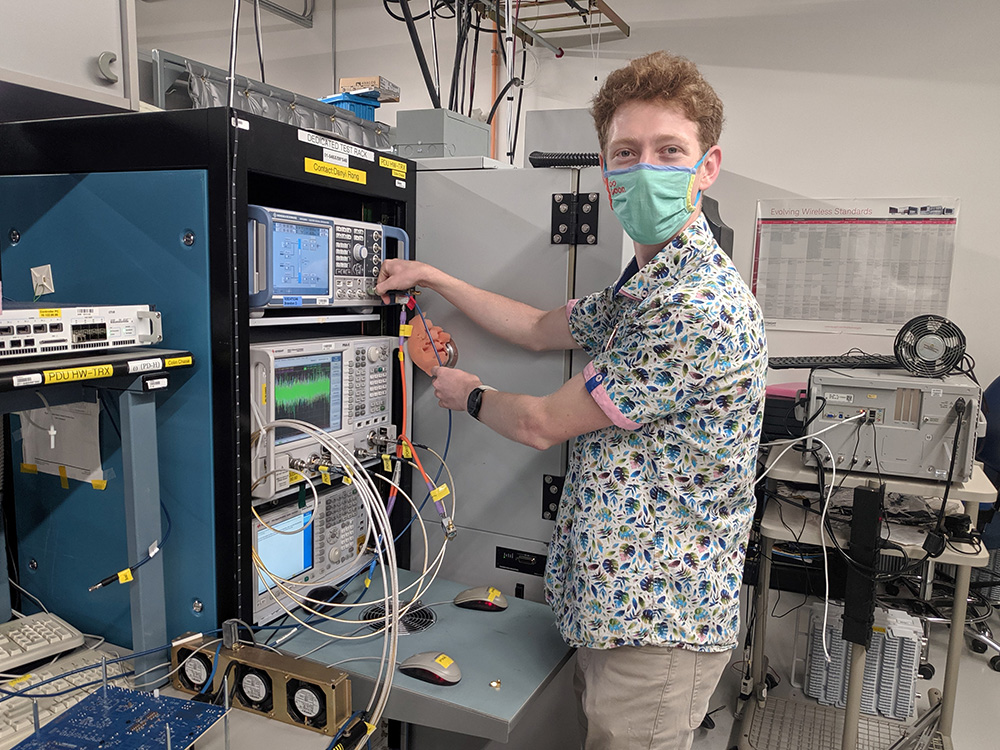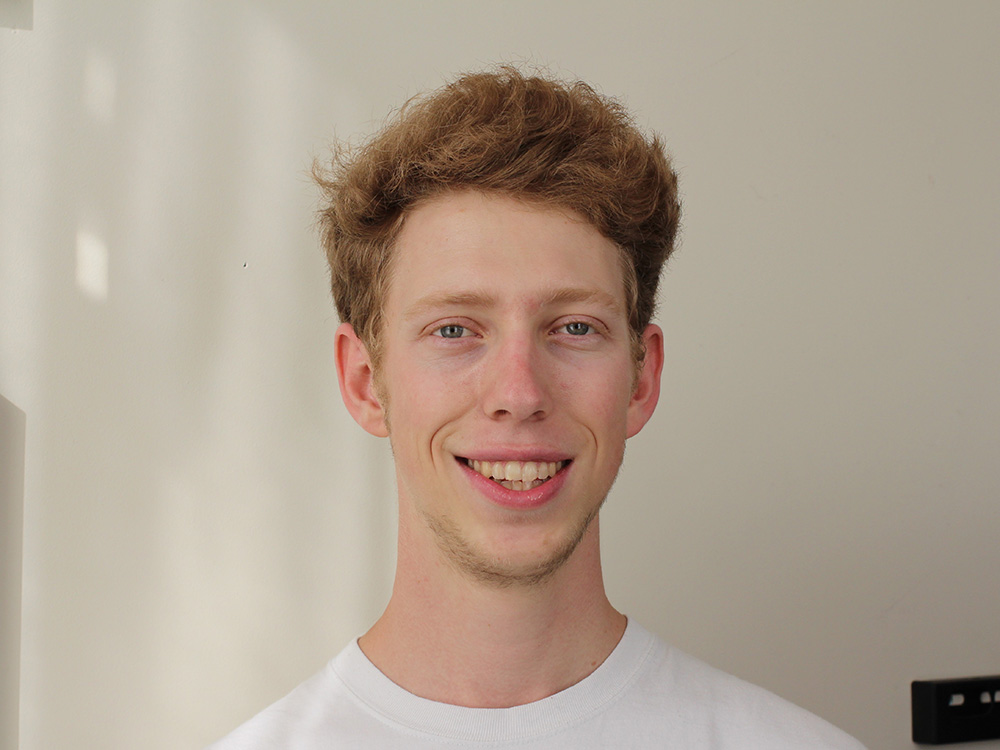Connor Dunham is a fourth-year Electrical Engineering student who has always enjoyed learning new things. His curiosity in how things work, and his eagerness to take on tough challenges fueled his initial interest in engineering. He applied to the Queen’s Faculty of Engineering and Applied Science unsure about which discipline he would select in year two but very certain that he would become an Engineer.
Connor shares in this Q&A how his desire to learn enhanced his internship and has continued to enrich his engineering journey.
Could you share a bit about yourself and how you decided on electrical engineering as your discipline?
I came to Queen’s University as I was attracted to the general first year. I initially wanted to go into Chemical Process Engineering, but after completing my first semester I realized that was not what I wanted to do. I chose to find something that I really enjoyed studying because I knew that would be what I wanted to pursue as a career. I looked at all the other courses I was taking and ended up selecting Electrical Engineering - I’ve been enjoying every minute of it.
Where did you do your internship, and what was your role?
I did my 16-month internship with Ericsson in Ottawa. Ericsson is a Swedish telecommunications company that develops hardware for cell phone networks globally. On my team, I was responsible for supporting design efforts for the circuits. I performed circuit validation, verification and developed software to help the engineers with their tasks. I also was working on some 5G cutting-edge size radios that enhance the function of cellular networks. 5G is the fifth generation of cellular networks and it is almost 100 times faster than 4G. 5G is creating new opportunities for both individual users and businesses through faster connectivity speeds and greater bandwidth.
From your experience, what skills would you say are integral to succeeding as an engineer?
Consistent learning, attention to detail and communication were 'must-have' skills during the entirety of my internship. Constant learning is critical for everyone, especially engineers - it is a standard expectation. You have to be constantly learning to stay on par and at the cutting edge of your field - I picked this up from my colleagues who had been with the company for a long time. To progress, you always look for something new to learn, whether technical or professional. Attention to detail is equally essential - as an engineer, people rely on you to make decisions, and you want to minimize the errors because they lead to lost time and money. Mistakes do happen but having a systematic approach to everything you do allows you to figure out what works and what does not in your design process. I found that communication is not just about speaking and writing well. Being observant and a good listener are also important pieces of good communication whether you are working independently or in a team.

How has your Queen's Engineering education and related experience helped you develop these skills and prepared you to succeed in the workforce?
Coming out of school, I had developed project management and communication skills through group projects. In the workforce, you have to work with different people on multiple projects with challenges and deadlines. I was in telecommunication, so going into meetings I found that many of the topics were way over my head at the start, so I went back to my class notes, especially the 3rd year material that I studied, which was very helpful. I also realized the significance of my design team's experience, which actually led to me to initially securing my internship at Ericsson. All the work I learned on my design teams, I used almost every day at work. Design teams teach students to take a very vague problem and develop solutions from start to finish without much guidance - that is what happens in real life.
From what I had learned in the classroom to the collaborative and experiential learning out of class, I found that I had all the tools and systems already in place to succeed.
What has been the most interesting part about being on internship with Ericsson? Is there a particularly interesting project you have worked on?
During the last eight months of my internship, I switched teams within my department and got to take on new projects that I could apply to the skillset I had developed during my previous experience with my old team. This was an exciting change of pace because I could use the knowledge I had previously gained to drive these projects along much quicker. After working on a segment of a larger project for several months I was eventually given the responsibility of the entire project and this was an eye-opening experience. I got a sense of how responsibility and accountability play in the role of an engineer and I learned about the importance of using good project management and communication to ensure projects meet all requirements and deadlines.
What advice would you offer your younger self or other students aspiring to be engineers?
The advice I would give to my younger self is: Don't understate yourself if you can put in the work and have the dedication; you can do many things that may surprise you, whether academic or personal. Many of the limits you put on yourself, be it related to ability or phase in your life, are not as real as you think they are. Take advantage of the support systems around you because nobody gets through everything on their own. One person is not going to get nearly as far as two or more people working together. So keep a good circle of people around you, stay connected, and keep it strong and active.
Finally, it’s so important to learn to like learning; my internship made me remember how much I valued learning and the fulfilment that comes from knowing new things personally and professionally.
